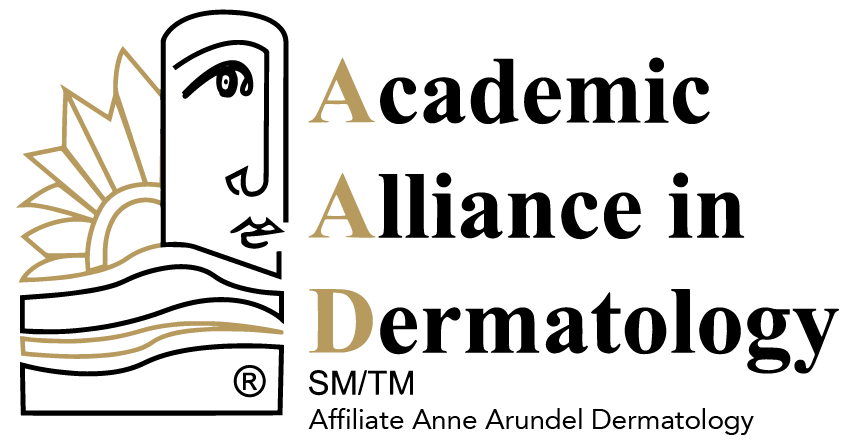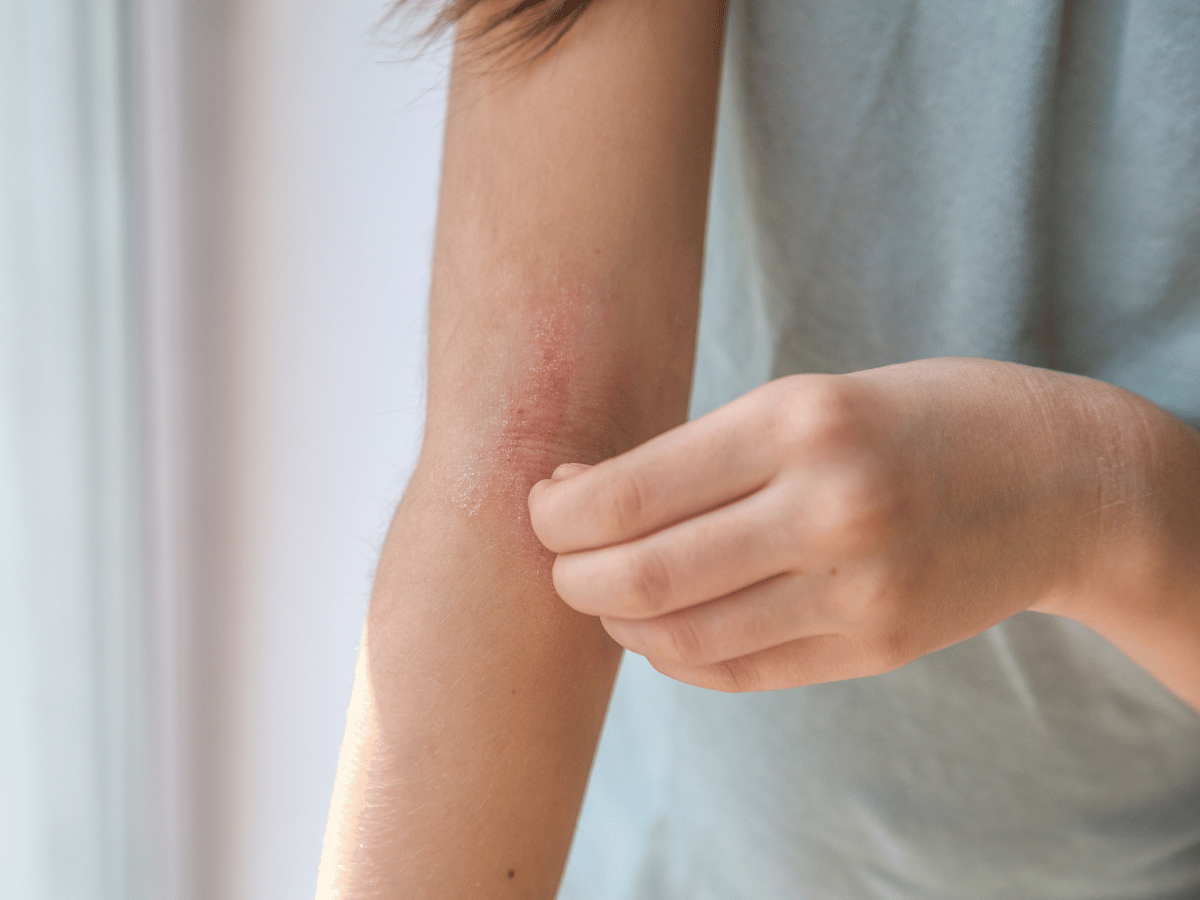What Is Eczema?
Eczema is a dermatologic condition characterized by patches of dry, itchy skin. Children are the most likely to suffer from eczema, but it may affect adults as well. While there is no cure for eczema, it is possible to manage the symptoms and reduce flare-ups. There are several types of eczema, and your treatment will largely depend on the type and severity of your condition.
TYPES
Atopic Dermatitis
This is the most common type of eczema, with 1 in 10 Americans being diagnosed with the condition. Atopic dermatitis often begins in infancy and occurs due to an immune system overreaction. The symptoms of the condition may include dry, itchy skin, skin redness, thick, scaly patches, and blistering.
Contact Dermatitis
This type of eczema occurs when the skin comes into contact with an irritant or allergen, such as soaps, detergents, and certain chemicals. Symptoms of contact dermatitis include blisters, red skin, a bumpy rash, dry or cracked skin, and mild to severe itching.
Dyshidrotic Eczema
Also called pompholyx, dyshidrotic eczema causes small, fluid-filled blisters to form on the palms of the hands and soles of the feet. These blisters usually last around three weeks and may be accompanied by intense itching and redness.
Hand Eczema
This type of eczema is marked by dry, irritated skin on the hands, typically in response to frequent contact with water or other irritants. Working with chemicals may also worsen hand eczema. Nurses, construction workers, and hair stylists are especially prone to this type of eczema.
Stasis Dermatitis
This type of eczema is most common in those who have poor blood circulation. Since poor blood circulation often develops in the lower legs, stasis dermatitis is most likely to appear near the ankles. Swelling, discolored skin, and varicose veins are among the early signs of stasis dermatitis.
CAUSES
Eczema is often caused by an overactive immune system that triggers inflammation. When your body comes in contact with certain allergens and irritants, your immune system assumes they’re harmful. As a result, your skin becomes inflamed and develops red, itchy patches. Common triggers of eczema flare-ups include:
- Dry weather
- Irritants like soaps, detergents, and fabric softeners
- Dust mites
- Pollen
- Pet dander
- Certain makeup or skincare products
RISK FACTORS
Your environment may also lead to an eczema flare-up. For example, your eczema symptoms may worsen if you are in an environment with lots of air pollutants, such as smoke, or if the air is too humid or dry. You are also more likely to develop eczema if a family member has the condition. Lastly, emotional triggers such as stress or depression may exacerbate your eczema symptoms.
SYMPTOMS
Eczema presents with dry, itching skin that can be red and cracked, or can occasionally be bumpy. Severe forms of eczema can cause fluid to come out from the cracks left in the skin. If left untreated, these cracks can allow bacteria and viruses to penetrate the skin and lead to a more serious infection.
FAQs
Is there a cure for eczema?
Unfortunately there is no cure for eczema, but it can be well managed with proper skin care.
How can I reduce the itching?
Itching is one of the worst symptoms of eczema. There are many methods to reduce the itchiness of the skin and minimize the damage of scratching. Cotton clothing and bedding keep the skin cool and allow it to breathe, whereas synthetic fabrics and wool can irritate the skin.
The use of a free & clear detergent and avoidance of fabric softener can also help to reduce the itchiness of the skin. Nails should be kept short to prevent injury to the skin from scratching. Frequent application of fragrance free emollients, especially after bathing, help
repair the skin barrier and minimize the itch. At nighttime, a cool bedroom temperature can be helpful as heat can trigger itching.
For children in particular, the itchiness of eczema can be very distressing. Distraction is often the best way of reducing scratching. Cotton mittens or all-in-one sleep suits can be helpful in reducing the damage to the skin occurring during sleep.
How can I tell if my eczema is infected? What are the signs?
If you think that an infection is present, you should see your doctor as early as possible so that it can be treated accordingly. Infection may be suspected if:
- The skin has blisters, pustules or dry crust.
- The skin is weeping a clear or yellow fluid.
- There is reddening, itching, soreness and sudden worsening of the eczema.
- Yellow pus spots appear.
- There are small, red spots around the body hairs.
- You have a raised temperature, and flu-like symptoms.
- You have swollen glands in the neck, underarms or groin.
The possibility of infection should always be considered in eczema that is getting worse or not responding to emollient and topical steroid treatment.
Can changing mine or my child’s diet help?
Dietary changes can be quite helpful in babies and young children, where the emollients and topical steroids have failed to control the eczema. Children under 5 are at the greatest risk of having their symptoms worsened by food allergies.
It is thought that in about 30% of children with eczema, food may be one of the causes, but a much smaller group than this (about 10%) will have food as their main or only trigger. This means that only a small number of children will be helped by changes in their diet. In other words, it is rarely diet alone that triggers eczema.
The evidence for changing diet in older children and adults is inconclusive and only a small number of adults are helped by diet changes. Also, finding the trigger can be difficult because of the wider variety of foods typically eaten by adults.
In children, dietary changes should not be made without the advice of a healthcare professional.
Visit Academic Alliance in Dermatology
Our team provides thoughtful, expert care for all your skin health needs. We are proud to offer the most advanced general, surgical and cosmetic dermatological services in the Central and South Florida regions. Your best skin awaits.

